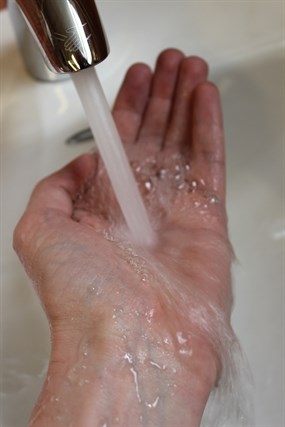
(SHANNON QUESNEL / iNFOnews.ca)
November 19, 2014 - 2:19 PM
'I CAN'T HELP BUT THINK THIS WAS A POLITICAL POSITION TO TAKE WITH THE ELECTION COMING UP'
VERNON - A local politician is speaking out against the results of the failed Greater Vernon Water referendum.
Electoral Area C director Mike Macnabb believes it failed for all the wrong reasons.
“I think the $70 million was a scary-large number for people,” Macnabb says. “But if you look at it per user, it’s not that huge a chunk of change.”
Upgrading the water system to meet provincial drinking water regulations would have had the average domestic customer’s water bill rise an additional $36 a year, each year, for five years.
“If we can’t afford to put a few extra bucks into our drinking water, where are our priorities?” Macnabb says. “These improvements will not only support our local population, but future generations.”
Right now, users are at an increased risk of contracting waterborne illnesses. The Antwerp Springs contamination—which put 1,800 customers on a Do Not Drink advisory—revealed the weaknesses of the system. For that, the courts fined the regional district $18,540.
“The courts nailed the regional district for not making sure the water was safe,” Macnabb says.
He believes another factor in the referendum’s demise is that municipal election candidates publicly declared they would vote against borrowing the funds.
“I can’t help but think this was a political position to take with the election coming up,” he says.
During the election campaign, some of the politicians who previously endorsed the Master Water Plan said they were voting no in the referendum, Macnabb says.
“To turn around and say they support the plan, but not the $70 million to fund it is disingenuous in my mind,” he says.
Some politicians reasoned voting no would put pressure on the provincial government to help pay for the improvements, but Macnabb says that’s the wrong approach.
“I’d rather work collaboratively than aggressively.... By stamping our feet saying you must do the funding, that’s not going to happen,” he says.
What happens next is murky. The Interior Health Authority could order the regional district to make the improvements, though spokesperson Dan Byron says it won’t jump to that solution.
“Despite the recent outcome of the referendum there are still opportunities to achieve our common goals for improved drinking water quality and reduce risks,” Byron says.
Interior Health will continue to work with the regional district and the Greater Vernon Water utility to meet the objectives in a ‘reasonable timeframe.’ That might involve bringing alternate plans into play.
“We understand that a large capital investment in the communities is required to achieve compliance with the objective and that it can take time to realize this goal. Enforcement options under the Drinking Water Protection Act will only be considered if provincial drinking water objectives cannot be met through these collaborative efforts,” Byron says.
To contact the reporter for this story, email Charlotte Helston at chelston@infonews.ca or call 250-309-5230. To contact the editor, email mjones@infonews.ca or call 250-718-2724.
News from © iNFOnews, 2014